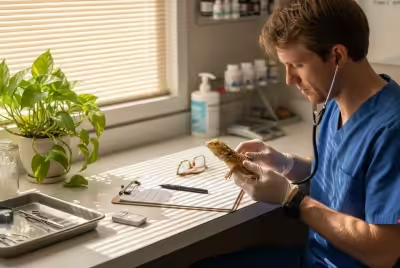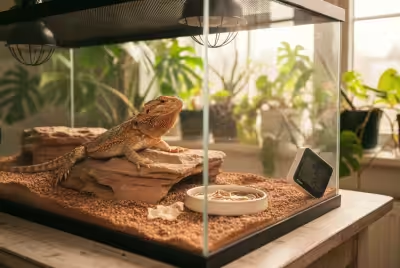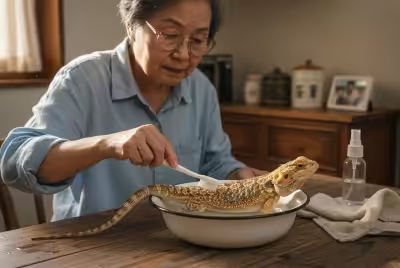Reptile Vets Near Me: A State-by-State Guide
If you’re a reptile owner, especially of bearded dragons, having access to a qualified veterinarian is essential. This guide provides a detailed state-by-state directory of reptile veterinarians in the USA, Canada, Australia, New Zealand, and the UK. Additionally, we’ll discuss when it’s critical for bearded dragon owners to contact a reptile vet.
When Should Bearded Dragon Owners Contact a Reptile Vet?
Bearded dragons are robust pets, but specific signs demand professional care from a reptile veterinarian. Below are situations when you should act immediately:
- Loss of Appetite or Weight
A bearded dragon refusing food for several days or losing weight unexpectedly may have parasites, dietary deficiencies, or a severe condition like metabolic bone disease (MBD). A vet can diagnose and provide treatment. - Respiratory Problems
If you notice wheezing, difficulty breathing, or mucus discharge, your dragon might have a respiratory infection. These can worsen quickly without prompt treatment. - Behavioral Changes
Lethargy, hiding excessively, or unusual aggression could be signs of stress, brumation irregularities, or infections. Always monitor sudden changes. - Shedding Issues
Retained shed, especially around the tail or toes, can cause circulation problems. A vet can safely assist if home remedies fail. - Visible Injuries or Swelling
Cuts, burns, fractures, or swollen areas often indicate trauma or abscesses. For more serious issues like a prolapse (internal organ protrusion), immediate medical attention is essential. - Abnormal Stool or Impaction
Diarrhea, blood in the stool, or constipation due to impaction can signal improper diet, parasites, or substrate ingestion. - Discoloration or Skin Issues
Black bearding, dark patches, or skin rot can suggest stress, fungal infections, or other illnesses requiring professional diagnosis.
Routine wellness checks are also vital for preventative care. Many issues can be avoided with early detection by a trained herpetologist vet.
Reptile Veterinarians by Region
United States
The USA has numerous experienced reptile veterinarians, divided here by regions for easier access.
- California
- Dr. Julia Katzenbach – Mesa Veterinary Hospital, Golden, CO.
Services: General and surgical reptile care.
Visit Website | Phone: (303) 237-9542
- Dr. Julia Katzenbach – Mesa Veterinary Hospital, Golden, CO.
- Florida
- Dr. Thomas Wilkerson – Graylyn Crest Animal Hospital, Wilmington.
Specialized in treating exotic pets.
Visit Website | Phone: (302) 996-9259
- Dr. Thomas Wilkerson – Graylyn Crest Animal Hospital, Wilmington.
Visit directories like ReptiFiles for more options.
Canada
- Ontario: Clinics in Toronto and surrounding areas specialize in exotic pet care.
- British Columbia: Vancouver hosts reptile-focused clinics.
See the full list via ARAV Directory.
United Kingdom
From London to Inverness, reptile veterinarians are scattered across the UK. Notable options include Vets4Pets clinics, renowned for exotic pet expertise.
Australia and New Zealand
Sydney, Brisbane, and Auckland are hubs for reptile specialists. Clinics in these cities cater to exotic pet emergencies and routine care. Check Terrarium Quest for Australian listings.
How to Find the Right Reptile Vet
- Search Directories: Use tools like Kingsnake Locator or ARAV Finder.
- Ask for Recommendations: Fellow reptile enthusiasts or forums can provide local suggestions.
- Check Certifications: Ensure the vet specializes in herpetology.
Conclusion
Your bearded dragon deserves the best care, and being proactive can prevent many health issues. Use this directory to locate a trusted reptile veterinarian near you, and consult them whenever your pet shows troubling symptoms. Regular checkups ensure your dragon thrives in its habitat.




